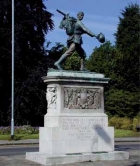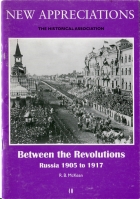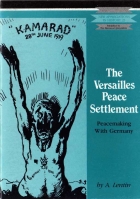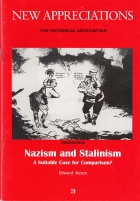Europe 1901-present
While war seems to be a backdrop to events in Europe in this time period the articles collected here explore many of the wider impacts and elements to the war. Medicine and technology are explored alongside dramatic changes in social attitudes. The political events that disrupt and shape Europe of the 20th century are explored though a range of engaging articles that include Russia and the USSR, Fascism and European co-operation.
Sort by:
Date (Newest first) | Title A-Z
Show:
All |
Articles |
Podcasts |
Multipage Articles
-

Polychronicon 135: Post-modern Holocaust Historiography
ArticleClick to view -

Polychronicon 134: The Great War and Cultural History
ArticleClick to view -

Between the Revolutions: Russia 1905 to 1917
ArticleClick to view -

The Versailles Peace Settlement
ArticleClick to view -

Nazism and Stalinism
ArticleClick to view -

Cunning Plan 126: What can Berlin tell us about Germany in the 20th century?
ArticleClick to view -

After the Uprising of 1956: Hungarian Students in Britain
ArticleClick to view -

Mussolini's marriage and a game in the playground: using analogy to help pupils understand the past
ArticleClick to view -

Polychronicon 119: The Second World War and popular culture
ArticleClick to view -

The Spice of Life? Ensuring variety when teaching about the Treaty of Versailles
ArticleClick to view -

Polychronicon 115: historians and the Holocaust
ArticleClick to view -

Drop the dead dictator: a Year 9 newsroom simulation
ArticleClick to view -

Learning and teaching about the history of Europe in the twentieth century
ArticleClick to view -

Parallel catastrophes? Uniqueness, redemption and the Shoah
ArticleClick to view -

Challenging stereotypes and avoiding the superficial: a suggested approach to teaching the Holocaust
ArticleClick to view -

Teaching the Holocaust: the experience of Vad Vashem
ArticleClick to view -

Working as a team to teach the Holocaust well: a language-centred approach
ArticleClick to view -

Moral dilemmas: history teaching and the Holocaust
ArticleClick to view -

'I've been in the Reichstag': Rethinking roleplay
ArticleClick to view -

Cunning Plan 97: A-Level: International Relations 1890-1914
ArticleClick to view

